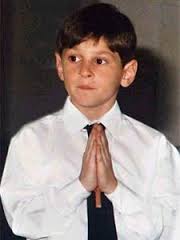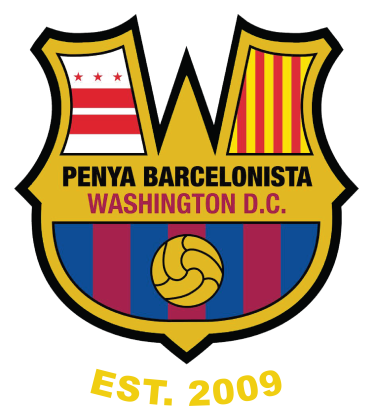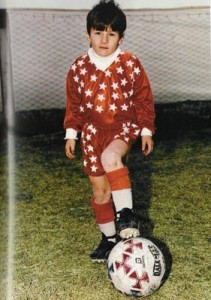Lionel Messi (Part 1)
by Othman Chebli
When he moved from Argentina to Catalonia as a 13 year old boy, all he wanted was to one day play with the Barcelona first team in the Camp Nou. No one would have predicted that he would make his official debut with the first team at the tender age of 17. Today he is viewed as the greatest player of his generation, and arguably one of the best players to ever play the beautiful game. 
Lionel Andres Messi was born in Rosario, Argentina on June 24, 1987. Growing up in a soccer environment, Lio was hugely influenced by his family. Rosario is a city known for producing world-class talent: some of the names include Gabriel Batistuta, Jorge Valdano, Javier Mascherano, Angel Di Maria, Gerardo ‘Tata’ Martino and plenty more. He grew up supporting the local team: Newell’s Old Boys (NOB). In fact, he was present for Maradona’s debut for the club during his brief stint there in 1993. His first birthday present was a NOB shirt. As soon as he could walk, Messi would go out to play in the street; he wanted to have a ball with him at all times. His mother, Celia, said that he did not sleep well without a ball by his side. Today, the whole world knows his iconic goal celebration: lifting his 2 index fingers to the sky, in dedication to his late grandmother. In fact, the only time in his professional career he did not dedicate a goal to her was when his son Thiago was born. His grandmother, also named Celia, was the first one that took him to a “competitive” game and begged the coach to put him in when his team of older players was down a man. The moment he walked on the field, he received the ball to his left foot and zigzagged through the field, not passing to anyone, and went on to score twice in that game. There is a video on YouTube showing highlights from that game. If not for the poor video quality and age of Lio, you would think it’s a recent video of Messi.
Between the ages of 5 and 13, Lionel was always on teams older than his age and he always excelled – winning several trophies and then continuing on to the NOB academy. Everyone who knew him back then recalls him as a very shy and reserved child that never said anything other than “yes” or “no”. He only expressed himself well on the soccer field. He is always remembered as the really short kid who could dribble the ball for an entire game and score but never pass to anyone.
When Lio was 10 his family decided to consult a doctor because the kid was not growing and was much smaller than his peers. They took him to see a doctor that worked with Newell’s Old Boys, who was also passionate about football, which helped ease Lio into trusting him and listening carefully. Dr. Diego Schwarzstein diagnosed Lio with the absence of a growth hormone. But, luckily, this hormone could be engineered and injected under the skin daily. The problem was that the treatment was fairly expensive at a cost of $1500 a month, and Lio had to inject it himself. The doctor and Messi got along pretty well as Lio played for Newell’s, and the doctor was a NOB fan himself. Because of this, they never lacked fun topics to discuss in order to ease the tension of a doctor’s cabinet. By the year 2000, more problems started arising; the family could no longer afford the treatment, and the team (NOB) stopped paying for it. Jorge, his father, then decided to take him to trials for other clubs in the country in hopes of finding someone to pay for his treatment, and also to pressure NOB into believing someone else might nab the little boy and take his talents away. After a few trials and rejections because of his small size, the family decided that the only solution was for Lio to go abroad and try his luck.
When the family thought there was no solution to their problem, some intermediaries connected to the prestigious Catalan agent Josep Maria Minguella, very close to Barcelona, got in touch with Jorge. The latter arranged for Messi and his family to be flown out to Barcelona for a trial and to discuss his health issues. After spending two weeks in Barcelona in what was supposed to be a one day trip, legendary Carles Rexach told Jorge and Lio that they could go back to Rosario with peace of mind, that they would be in touch, and that Lio would be back to sign in no time. In contrast, Barcelona’s first team was not doing so well in those days. Rexach was interested in signing a small foreign 13 year old player, but no decision was taken and the Messis started growing weary of the situation back home. The Messis had offers from AC Milan and Atletico Madrid. Meanwhile, Jorge Valdano, the Argentine sporting director of Real Madrid, kept his eyes on the situation from afar. As months went by, Rexach insisted to everyone at the club that it was worth signing little Lio and that everything else would be dealt with. In an attempt to prove his commitment to signing Lio, Rexach then, while having a conversation with Minguella at a restaurant, asked the waiter for a pen and paper. What happened next is referred to by many as the “napkin contract story”. Rexach wrote: “In Barcelona on 14 December 2000 in the presence of Minguella and Horacio, Carles Rexach, technical director of FCB, commits to the signing, regardless of some opinions to the contrary of Lionel Messi, as long as the figures previously agreed are respected.” To some, this is the most important document in the recent history of FCB. The following month, NOB wanted to register him to the Argentine Federation, because -and this is key- Messi was not yet registered to the Rosario club. This effectively waived any potential transfer fee and eased the process, but the Messis wanted to confirm the deal with FCB before that happened.
Ultimately, Rexach agreed to grant Messi’s demands: a house for the family, travel costs, and a job for Jorge, as well as treatment. The signing of Messi did not come cheap; in fact, it surpassed every other youth team player. This sparked heated debates within the Barcelona directors as the president wanted to win NOW, and Rexach insisted on paying for everything to bring Lio to Barcelona. Little did Joan Gaspart, then-president at FCB, know that Messi would debut for the first team three years later. Everything was agreed upon after Rexach guaranteed that Lio would be worth signing.
The Messis then had to make their final decision. The boy could not think of joining any club other than Barcelona and the family had to make up their mind about moving across the Atlantic. Finally, on 8 January 2001, the club finalized the contract details; Messi would earn around €600k, and receive payments for his image rights, Jorge would work for a security company owned by FCB, the club would also pay for rent for the family, and, finally, the club would start paying the hormonal treatment that would increase his height to 1m67cm. He ended up reaching a height of 1m69cm.
On 15 February 2001, after weeks of preparation and tension, a rush to get passports, travel authorization and suitcases, the Messis began their journey to Barcelona.
To be continued…


You must be logged in to post a comment.